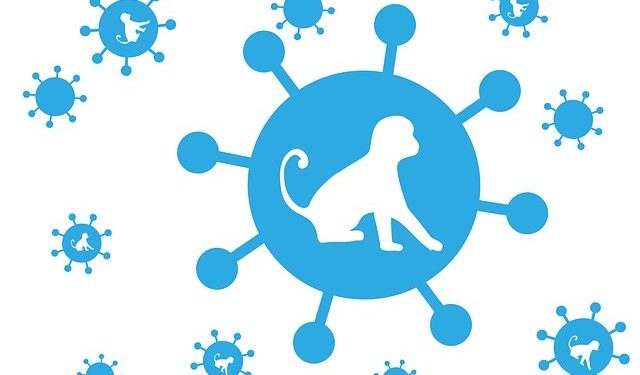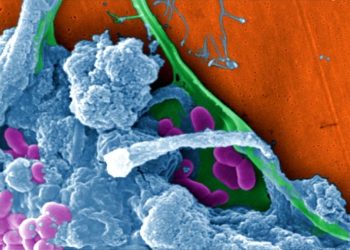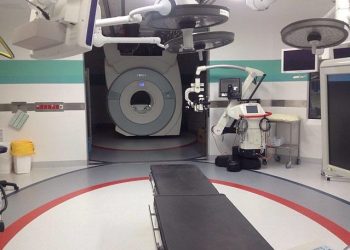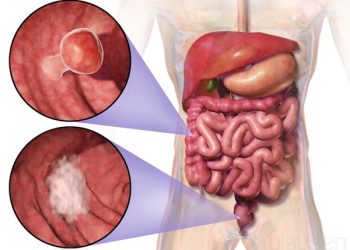The latest outbreak of monkeypox, as of May 3rd week, has reached 17 countries with 110 confirmed cases and a further 205 suspected cases. Scientific community around the world say that cases may rise over the next two-to-three weeks, but this is not another pandemic in the making. Monkeypox doesn’t spread anywhere near as easily as the airborne virus SARS-CoV-2 that causes COVID-19. Also, the Smallpox vaccine is quite effective in preventing it.
While 130 is not a large number, appearance of this infection outside Central and West Africa has set off a panic. Without naming any countries, the World Health Organization (WHO has said another 106 suspect cases are being investigated.
What Is Monkeypox?
It’s a rare viral infection that is usually mild and does not spread easily from person to person. Most people recover from it in a few weeks, according to the UK’s National Health Service. And while there is no monkeypox vaccine, a smallpox jab offers nearly 80% protection, since the two viruses are similar.
There are two main strains of the monkeypox virus – West Africa and Central African. The WHO last week termed the recent outbreaks ‘atypical, as they are occurring in non-endemic countries.’
While two of the patients in the UK had travelled from Nigeria, another is a healthcare worker who picked up the virus from a patient. A man who had recently travelled to Canada was confirmed infected in the US, and Australia’s first case is a man who fell ill after traveling to the UK.
There is speculation about the cure outbreak been caused by mutation. However, at this point, it is just that – speculation. What has surprised the WHO scientists is that all but one of the recent cases had no relevant history of travel to areas where monkeypox is endemic.
What Are The Symptoms?
Patients may experience fever and/or chills, swelling of lymph nodes, headache, backache, exhaustion and muscle pain. Fever is present in most, but, not all, patients. This phase is followed by a rash during which the first symptoms like fever may diminish or disappear.
It is a self-limited disease with the symptoms lasting from two to four weeks, but severe cases can occur and the case fatality rate varies from 1% to 10%.
How Does It Spread?
It can be transmitted from an animal to a human, as well as human to human. The virus enters the body through broken skin, the respiratory tract, or the mucous membranes (eyes, nose or mouth). An infected person may transmit the disease from 1-2 days before the rash appears and remain contagious till the scabs fall off.
Sexual transmission is a possibility, and former WHO expert Dr David Heymann said that the current outbreak may have started at two raves held in Spain and Belgium.
Could It Spread Around The World?
According to the Health Security Agency experts in the UK, where cases have been detected, the risk is low. Jonathan Ball, professor of molecular virology, University of Nottingham, said: “The fact that only one of the 50 contacts of the initial monkeypox-infected patient has been infected shows how poorly infectious the virus is.”
Why Is It Called Monkeypox?
Monkeypox was first identified in laboratory monkeys (macaques) in Denmark in 1958, hence the name. However, monkeys don’t seem to be the natural hosts of the virus. It is more commonly found in rats, mice and squirrels.
Is This The First Outbreak Outside Africa?
The monkeypox virus was discovered in 1958 but the first human case was recorded in the Democratic Republic of Congo in 1970. The first outbreak outside Africa was in the US in 2003 when the disease arrived with imported animals. A total 81 cases were reported, but none resulted in death.
Nigeria experienced the largest known outbreak in 2017. There were 177 suspected cases and 75% of those infected were men between 21 and 40 years old.
Is Monkeypox Related To Smallpox And Chickenpox?
Monkeypox is related to smallpox – they are both orthopoxviruses – but it is not related to chickenpox. Despite the name, chickenpox is a herpes virus, not a poxvirus. (How “chicken” got in the name is not entirely clear. In his dictionary of 1755, Samuel Johnson surmised that it is so named because it is “of no very great danger”.) Nevertheless, the vesicles (little pus-filled blisters) caused by monkeypox are similar in appearance to those of chickenpox.
Has Monkeypox Evolved To Be More Virulent?
RNA viruses, such as SARS-CoV-2, don’t have the ability to check their genetic code for mistakes each time they replicate, so they tend to evolve faster. Monkeypox is a DNA virus, which does have the ability to check itself for genetic mistakes each time it replicates, so it tends to mutate a lot slower.
The first genome sequence of the current outbreak (from a patient in Portugal) suggests that the virus is very similar to the monkeypox strain that was circulating in 2018 and 2019 in the UK, Singapore and Israel. So it is unlikely that the current outbreak is the result of a mutated virus that is better at spreading.
Is there a Vaccine For It?
Vaccines for smallpox, which contain the lab-made vaccinia virus, can protect against monkeypox. However, the vaccine that was used to eradicate smallpox can have severe side-effects, killing around one in a million people vaccinated.
The only vaccine specifically approved for monkeypox, Imvanex, is made by a company called Bavarian Nordic. It uses a non-replicating form of vaccinia, which causes fewer side-effects. It was approved by the US Food and Drug Administration and the European Medicines Agency in 2019 – but only for use in people 18 years of age or older.
Are There Drugs To Treat It?
There are no specific drugs to treat monkeypox. However, antivirals such as cidofovir and brincidofovir have been proven to be effective against poxviruses in animals and may also be effective against monkeypox infections in humans.
How Are Governments Tackling It?
The UK and Spain have bought stocks of the smallpox vaccine. The UK has started offering the shots to those with ‘higher levels of exposure’.
There is no sign of the disease in India yet, but, the government is taking precautions, by beginning surveillance at all international airports and seaports. Health authorities have been told to keep a watch on people who present with an otherwise unexplained rash, or have travelled to a country with confirmed or suspected cases of monkeypox in the past 21 days, or report contact with a person or people with confirmed or suspected monkeypox.
Suspected cases will be isolated at designated health facilities until their lesions heal, and if infection is confirmed after testing bodily fluids, contact tracing will be done.
(Image courtesy: Pixabay.com)

















